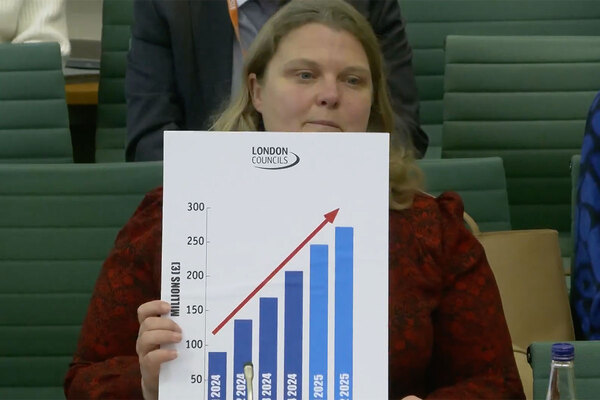A year on from the Social Housing Regulation Act, landlords need to keep improving
Our new proactive regulatory regime is helping identify issues early. But all landlords – even those with the highest grades – need to keep improving, says Kate Dodsworth, chief of regulatory engagement at the Regulator of Social Housing (RSH)
Today marks a year since the landmark Social Housing (Regulation) Act came into force.
Introduced in response to the Grenfell Tower fire, it gave the RSH new powers to proactively inspect landlords to make sure they deliver the outcomes of our standards, including the revised consumer standards.
Our new integrated inspections give us a fuller picture of a landlord’s performance. The standards are inextricably linked: good governance means landlords have a better grasp of strategic risks, giving them the ability to build more homes while ensuring existing homes are safe and decent.
Our scrutiny is vital to help private investment flow into the sector and allow housing associations to build much-needed new homes and drive growth, even with limited resources.
This new proactive remit has been vital for surfacing issues earlier, as the government highlighted in its response to the Grenfell Tower Inquiry’s final report in February.
Whether it is identifying a risk to viability on the horizon, or tackling damp and mould, taking action early is the best way for social landlords to stop emerging issues becoming more serious.
A huge amount of work has gone into preparing for this new type of regulation, not just from ourselves, but across the whole sector. We can see evidence of that work starting to pay off in some of our inspections, where landlords have sought external advice on a particular strategy or commissioned a comprehensive stock condition survey to inform better business planning and better outcomes for tenants.
“We can see evidence of that work starting to pay off in some of our inspections, where landlords have sought external advice on a particular strategy or commissioned a comprehensive stock condition survey”
While a year in is still too soon to draw firm conclusions, it’s clear that some landlords have more work to do than others, but all landlords – even those with the highest grades – need to keep improving.
We need assurance that organisations have the systems and skills in place to deal with financial risk and keep tenants safe in their homes. Rigorous stress-testing, a strong grasp of strategic risks, good data on homes and strong tenant engagement all signal that all-important proactive culture.
Equally, a poor track record on repairs and fire risk assessments, or high levels of voids and arrears, are all indicators of where things might be going wrong, suggesting that an organisation might have lost control over the fundamentals.
It is why providing safe, decent homes and good services to tenants often boils down to governance. A weak grip on risks at board level often leads to failures in financial viability or consumer outcomes.
Although these economic standards do not apply to local authorities, we still expect them to meet the same consumer standards as private registered providers. And while there have been a couple of cases where there have been particularly serious failings, there are also examples of councils doing this successfully and achieving C1 gradings.
Both housing associations and councils are grappling with financial challenges on a number of fronts and these are unlikely to go away any time soon.
We can see from our data that many housing associations will face particularly tight financial positions over the coming months, making financial governance and risk management more important than ever.
“Providing safe, decent homes and good services to tenants often boils down to governance. A weak grip on risks at board level often leads to failures in financial viability or consumer outcomes”
Local authorities are also facing their own unique set of challenges, balancing the need to deliver more and better social homes with increasingly constrained budgets and other priorities, such as temporary accommodation and homelessness.
While we are mindful of these pressures in our regulation, we still expect the outcomes of the standards to be met.
Though landlords are investing record amounts into existing homes through repairs, fire safety and preparing for the first phase of Awaab’s Law in October, the results of our inspections show that too many homes are still failing to meet the Decent Homes Standard.
Regulation works best when social landlords can decide themselves how they will meet the outcomes of our standards, including making any difficult but necessary trade-offs, or working out how to fix any issues themselves in the first instance. We can and will take action if these outcomes are not being met.
Delivering the outcomes of our standards is not meant to be a tick-box exercise; we want landlords to really consider the best way of meeting their tenants’ needs, and this will vary from an almshouse to larger housing association with thousands of homes.
This co-regulatory approach relies on having mature, constructive engagement with landlords. Those who self-refer when they have identified an issue give us confidence that they are acting transparently and taking accountability.
As we move into the second year of our inspections, we have seen that many landlords take their responsibilities seriously and are applying the lessons from the first 52 inspections to their own organisations.
This is the best way to keep tenants safe in their homes, create the conditions for growth and improve social housing for the long term.
Kate Dodsworth, chief of regulatory engagement, Regulator of Social Housing
Sign up for our regulation and legal newsletter
Already have an account? Click here to manage your newsletters
Latest stories









